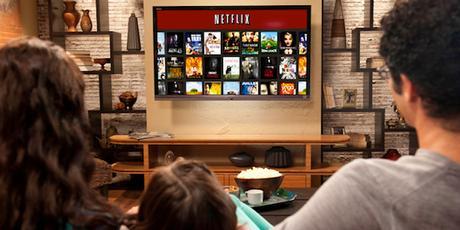
First off, it's never a good start when you title your article, "Is Uwe Boll right?" As a general rule, you should just assume he's wrong about everything, lest you want to actually agree with the man who made such modern stinkers as In the Name of the King, BloodRayne, Auschwitz, House of the Dead and Alone in the Dark and ended his most recent (ultimatley failed) Kickstarter campaign by t elling his fans to go fuck themselves. Think of him as the modern day Ed Wood, i.e., an enthusiastic amateur filmmaker whose skills never really advanced regardless of how many films he made. The added kicker with Boll is simply how many notable actors with mortgages, alimonies, gambling debts or whatever else to pay had to quietly take a paycheck on one of his movies. Examples include Ray Liotta, Christian Slater, Dave Foley, J.K. Simmons, Leelee Sobieski, John Rhys-Davies, Ron Perlman, Claire Forlani, Matthew Lillard and Kristanna Lokken (those last 6 all came from the same movie, 2007's In the Name of the King).
And yet I was left wondering if Uwe Boll had a point when he explained his self-imposed retirement by telling :
" Rampage 3 [his final film] will be watched on Netflix, DVD or iTunes or whatever. They'll say, 'That wonderful movie! I liked it blah, blah, blah,' then watch Avengers. With streaming everywhere there is just a big wave of movies flooding around and you have no impact. The market is dead. You don't make any money anymore on movies because the DVD and Blu-ray market worldwide has dropped 80 percent in the last three years. That is the real reason; I just cannot afford to make movies. I have made so many movies in my life, and I can't make cheaper and cheaper movies at my age. It's a shame. I would be happy to make movies but it is just not financially profitable."
It's no secret DVD and Blu-ray sales have been declining for some time now after peaking in 2004, at which point DVDs accounted for a stunning 96% of home entertainment spending, but an 80% plunge in the last three years? That can't be right. Is it really that bad?
Let's find out:
According to the Digital Entertainment Group, U.S. sales of DVDs and Blu-ray discs topped out at $6.1 billion in 2015 compared to $7.7 billion in 2013, a 21.6% decrease. Sales dropped a further 6.3% in the first half of 2016.
People don't just buy DVDs and Blu-Rays though. Believe it or not, Redbox kiosks, brick and mortar video stores (which still exist...somewhere) and subscription DVD/Blu-Ray rental services contributed $3 billion to home video's bottom line in 2015, although that marked a 23% decrease from 2013's $3.9 billion. This business is cratering even faster in 2016, with a 17.3% decrease in rentals of all movies on discs across the year's first six months.
So, from 2013 to 2015 the combined sales and rentals of DVDs and Blu-Rays dropped 22%, which is obviously not even remotely close to 80%. To be fair to Boll, maybe he didn't really mean "in the last three years" because there has been a far more dramatic 47% decrease since 2010, which appears to be as far back as DGE's yearly reports go. Plus, Boll did say worldwide, not just in the U.S. Where does one go for international/worldwide figures?
That's the tough part. Digital Entertainment Group does not report international sales. They do have sister organizations in Europe and Japan, but the former's website appears to have been seized by a refrigerator moving company (as far as I can tell) and the latter's site AND PDF reports are all in Japanese (which can probably be translated, but that would still only give us the numbers for one individual country). You can't turn to the MPAA, which once told New York Times "Those figures are confidential, and we don't release them" when asked to provide some clarity on the murky international home video market. And try as I might for the past couple of hours through Google I could not find a single solid source which specifically broke down annual international DVD and Blu-Ray sales and/or rentals (if I missed it feel free to shame me in the comments section, but at least give me a link to the figures I somehow missed).
For now, we'll have to make do with this 2016 report from Quartz.com which stated physical sales of movies have halved in the UK since 2008, "when the first streaming-video on-demand services-Amazon, followed by Netflix-came to the country," and a similar effect appears to be happening around the globe when each new country finally gets Netflix and easy internet access. As such, the numbers in the following chart probably have nowhere to go but down:
But, really, it's hard to imagine the international numbers could ever be so bad as to make up the 58% shortfall between the actual decline in the U.S. and Boll's estimate for worldwide decline. On top of that, it doesn't even matter because this is all inevitably leading to a discussion of how the drop-off in physical sales is being met, albeit not necessarily entirely negated, by a rise in digital sales.
For example, let's look at the DGE data again. While physical sales/rentals dropped 12% last year, digital sales/rentals (i.e., buying or renting through Amazon, Vudu, iTunes, etc.) rose by 15.6%. That's remarkably close to electronic sell-thru and VOD's three-year increase of 15.9%, which is certainly good but doesn't quite make up for DVD/Blu-Ray's 22% decline across that same time frame.
 The real growth has come from subscription streaming (i.e., Netflix, Amazon Prime, Hulu), which jumped up 25% both last year and in 2014. In fact, subscription streaming now accounts for 28% of all home entertainment spending, easily dwarfing electronic sell-thru and VOD and projected to surpass physical sales/rentals as soon as this year.
The real growth has come from subscription streaming (i.e., Netflix, Amazon Prime, Hulu), which jumped up 25% both last year and in 2014. In fact, subscription streaming now accounts for 28% of all home entertainment spending, easily dwarfing electronic sell-thru and VOD and projected to surpass physical sales/rentals as soon as this year.
That's a legitimate problem because subscription streaming is not as easily monetized by Hollywood as more traditional home video sales, and its success not only threatens the home video market but also the TV networks and movie theaters. It's a seismic shift which has upset the industry's entire ecosystem, causing the ever-increasing need to strike gold at the international box office before reaching home video in the first place and forcing more and more actors to work the fan convention circuit to make up for their dwindling home video/cable royalty checks, just to name a couple of the byproducts of the supposed death of home video.
But it's not exactly as dire as Boll made it sound. I know it may not seem like it, but plenty of people still do buy and/or rent DVDs and Blu-Rays. Even if that's trailing off over time, there are now more people buying/renting digital movies than there were 3 years ago. Everyone might have simply stopped specifically buying/renting Boll's movies, who claims to have been self-financing his movies since 2005, aided considerably by Germany's generous tax incentives as well as his own personal tax shelter.
People like Boll have been making bad movies thanks to the robust home video market for decades. He's a kindred spirit in that way with Menahem Golen and Yoram Globus, the two Israeli snake oil salesman behind Cannon Films (responsible for all those damn Death Wish sequels, among so many others) in the 80s. However, Roger Corman is the grandad of such filmmaking, except he goes so far back he actually predates the mere idea of home video. At last check, he was still making movies despite the considerable volatility in the home video arena. See, it can sill be done; the profit margins just aren't what they used to be. Eventually, the market will tell you whether or not you can afford to keep going, and perhaps, at long last, the market finally decided Boll needed to go away.

